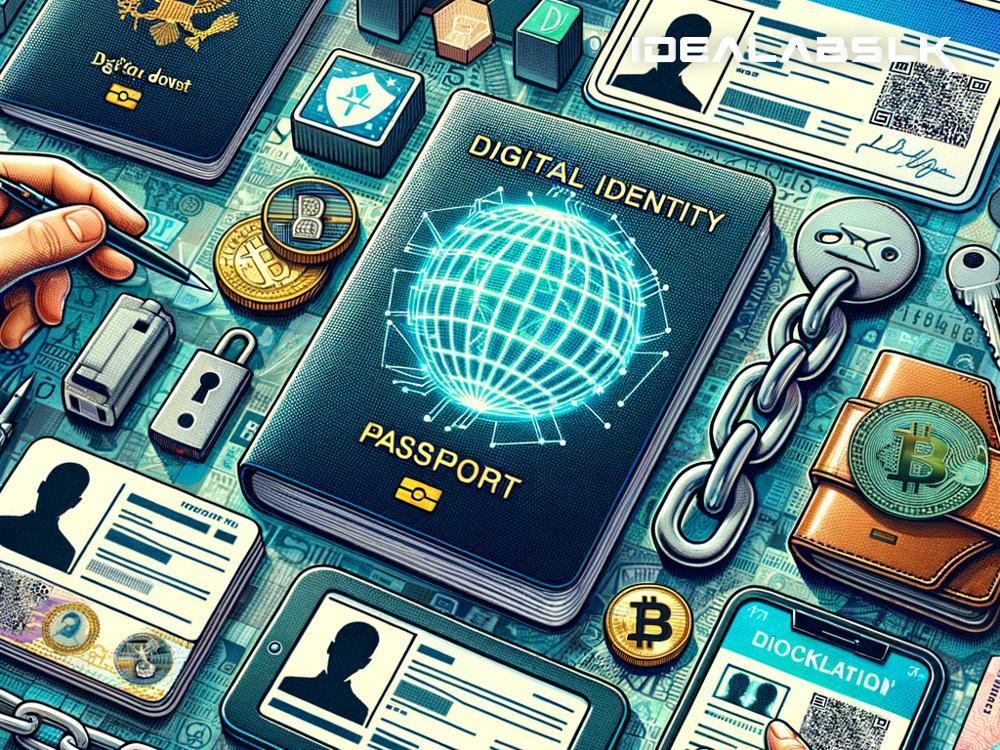Unlocking the Basics of Blockchain in Digital Identity Verification
In today's fast-paced digital age, ensuring that someone is who they claim to be online has become more critical and challenging than ever. Enter blockchain technology – a term you've likely heard buzzing around the tech scene, hailed as a game-changer for various industries, including digital identity verification. But what exactly is blockchain, and how does it play into verifying digital identities? Let's break it down into simple English.
What is Blockchain?
Imagine a digital ledger that's open for everyone to see. Each page of this ledger is called a "block," and these blocks are chained together in a specific order – hence the name, blockchain. Every block records transactions or data securely and transparently. Think of it as a communal diary that everyone can read, but no single person can tamper with. The beauty of blockchain is its ability to create trust without the need for a middleman, thanks to its decentralized nature and cryptographic security.
The Role of Blockchain in Digital Identity Verification
Digital identity verification is essential in our online world, from logging into social media platforms to accessing banking services. Traditionally, verifying someone's identity online relies on centralized systems that store personal information. These centralized systems, while generally effective, can be vulnerable to hacks, identity theft, and even accidental data leaks.
Here's where blockchain comes into play, offering a more secure, efficient, and user-controlled method of managing digital identities. But how does it actually work? Let’s dive into the key aspects:
-
Decentralization: Unlike traditional systems where one company holds all your data, blockchain distributes it across a network, reducing the risk of data breaches. Your digital identity on blockchain isn't stored in one central location but is instead spread out, making it harder for hackers to exploit.
-
Security Through Cryptography: When your identity information is added to a blockchain, it is encrypted using advanced cryptography. This means that it's converted into a complex code that only you, with your private key (think of it as a highly secure password), can decode. Even if someone else gets access to your data on the blockchain, without your private key, it’s meaningless to them.
-
Control and Consent: With blockchain, you have more control over your identity information. You decide what parts of your identity get shared and with whom. If a service needs to verify your age, for example, the blockchain can confirm you're over the necessary age limit without revealing your exact birthdate. You grant permission, and if you choose, revoke it at any time.
-
Transparency and Trust: Every transaction on a blockchain is recorded and time-stamped, creating an unchangeable history of your identity verifications. This transparency makes it easier to trust the process because everything is traceable and can't be altered without consensus from the network.
Real-World Application: A Simple Scenario
Let's say you're applying for a loan online. The bank needs to verify your identity to proceed. Here's how blockchain can streamline this process:
- You allow the bank to access certain information stored on the blockchain, like your identity verification.
- The bank uses a public key (a piece of information that corresponds with your private key) to access the necessary data.
- Once it confirms your identity through the blockchain, the process moves forward, all without actually seeing or storing your personal information directly.
This minimizes the risk of your data being exposed while making the verification process quicker and more efficient.
The Future of Digital Identity Verification
Blockchain technology in digital identity verification is still evolving, but it's already showcasing the potential to revolutionize how we manage and confirm identities online. As we move towards more decentralized, secure, and user-centric approaches, blockchain stands out as a promising solution to the complex problem of digital identity.
By offering a way to verify identities that's both more secure against fraud and more respectful of individual privacy, blockchain doesn’t just change the game; it’s playing an entirely new one. As we continue to navigate the digital landscape, embracing technologies like blockchain could make the internet a safer, more trustworthy space for everyone.
In conclusion, blockchain technology offers a more secure, efficient, and user-controlled approach to digital identity verification. By decentralizing data, utilizing cryptography for security, and giving individuals control over their own information, blockchain can reduce the risk of data breaches and increase trust in online transactions. As this technology continues to evolve, it has the potential to revolutionize the way we manage and confirm identities online, making the digital world a safer and more secure place for everyone.

